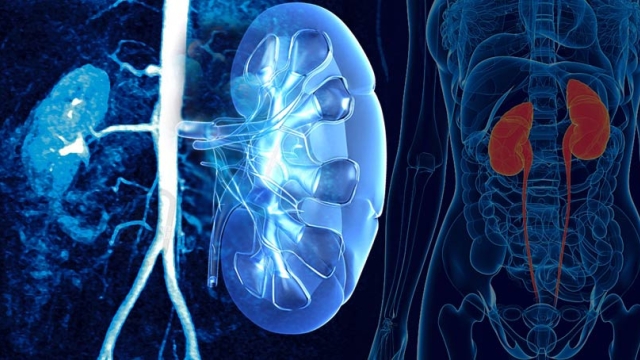
10 Essential Tips for a Healthy Urology
In the quest for overall well-being, it’s crucial not to overlook the health of our urological system. Urology, the branch of medicine dedicated to the study and treatment of conditions related to the urinary tract and reproductive system, plays a pivotal role in maintaining our body’s equilibrium. Whether you’re male or female, young or old, ensuring the optimal functioning of your urology is essential for a healthy and fulfilling life.
To support you on this journey, we have compiled ten indispensable tips to help you care for your urology. From lifestyle adjustments to preventive measures, these recommendations aim to empower you with knowledge and encourage proactive habits, creating a solid foundation for urological well-being. So, let’s delve into these insightful suggestions and discover how we can safeguard this vital aspect of our health.
Maintaining a Healthy Lifestyle
In order to promote urological health, it is crucial to adopt a healthy lifestyle. By making simple but effective changes, you can significantly reduce the risk of urological issues and maintain overall well-being.
First and foremost, maintaining a balanced diet is key. Make sure your meals are rich in fruits, vegetables, and whole grains, as they provide essential nutrients and fiber that support a healthy urinary system. Additionally, opt for lean proteins such as fish and poultry, while limiting the consumption of processed foods and saturated fats.

Regular physical activity is equally important. Engaging in activities such as walking, running, or sports not only helps to maintain a healthy weight but also promotes proper blood flow to the urological organs. Aim for at least 30 minutes of exercise most days of the week to maximize the benefits.
Lastly, don’t forget to stay hydrated! Drinking an adequate amount of water throughout the day ensures proper kidney function and helps flush out toxins from the urinary tract. Aim for at least 8 glasses of water daily, and increase your intake during hot weather or when engaging in strenuous activities.
By embracing a healthy lifestyle, you can effectively reduce the risk of urological problems and maintain optimal urological health. Taking care of your body today will yield long-term benefits for years to come.
Common Urological Conditions
Kidney Stones: Kidney stones are a prevalent urological condition that can cause severe pain and discomfort. These small, hard mineral deposits form in the kidneys and can obstruct the urinary tract, leading to symptoms such as intense pain in the back or side, blood in the urine, and frequent urination. Treatment options include drinking plenty of fluids, medications to relieve pain and facilitate stone passage, or medical procedures to remove or break up larger stones.
Urinary Tract Infections (UTIs): UTIs are infections that can occur in any part of the urinary system, including the kidneys, bladder, ureters, and urethra. Common symptoms include a strong, persistent urge to urinate, a burning sensation during urination, cloudy or bloody urine, and pelvic pain. UTIs are usually caused by bacteria and can be treated with antibiotics prescribed by a healthcare professional.
Benign Prostatic Hyperplasia (BPH): BPH refers to the enlargement of the prostate gland, which is common in aging men. The enlarged prostate can obstruct the flow of urine, resulting in symptoms such as frequent urination, weak urine flow, difficulty starting and stopping urination, and the feeling of incomplete bladder emptying. Treatment options for BPH vary from medications that relax the prostate muscles to surgical procedures that remove or reduce the size of the prostate gland.
Remember, if you experience any urological symptoms or have concerns, it is important to consult with a qualified healthcare professional for proper evaluation and treatment.
Prevention and Early Detection
In order to maintain a healthy urology, prevention and early detection play a crucial role. By adopting certain habits and undergoing regular screenings, you can significantly reduce the risk of urological conditions and ensure early intervention if any issues arise.
Urologist In Amman
Healthy Lifestyle Habits: Leading a healthy lifestyle can have a positive impact on urology health. Engaging in regular physical activity, maintaining a balanced diet, and staying hydrated are all essential. Avoiding tobacco use and excessive alcohol consumption also contribute to a healthy urology.
Hygiene Practices: Practicing good hygiene is vital for urology health. Ensuring cleanliness in the genital area, especially after using the restroom, can help prevent urinary tract infections and other urological issues. It is important to properly clean the genital area with mild soap and warm water.
Regular Check-ups: Regular check-ups with a urologist are essential for early detection of any potential urological problems. These visits allow for screening tests such as urine analysis, prostate-specific antigen (PSA) tests for men, and pelvic exams for women. Early detection can improve the chances of successful treatment and management of urological conditions.
By incorporating prevention measures into your lifestyle and prioritizing early detection, you can take proactive steps towards maintaining a healthy urology. Remember to consult with your healthcare professional for personalized advice and recommendations.



